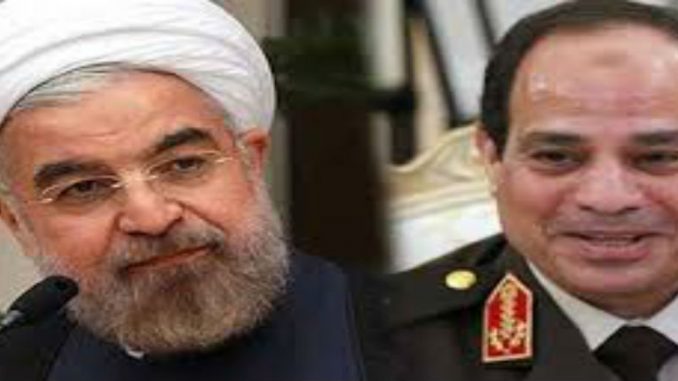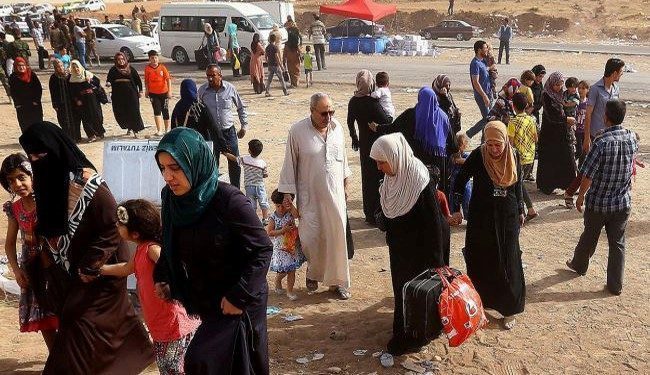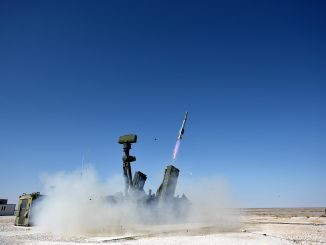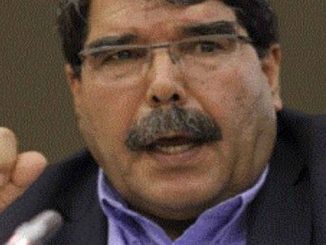
Head of Egypt’s Interest Section in Tehran Yasser Othman said that the Cairo and Tehran stances on regional developments are quite close to each other, according to IRNA, the Iranian official News Agency.
Othman made his remarks in a meeting with Head of Iran-Egypt parliamentary friendship group Assadollah Abbasi while expressing his country’s readiness to expand cooperation.
In this context, the Egyptian diplomat expressed his pleasure for recent exchanges of visits and welcomed them in direction of creating peace and stability in the region.
Abbasi also said that the two countries have age-old cultural and civilization relations, and said that the world Islamic Ummu(Nation)expects more from Iran and Egypt in direction of creating peace, tranquility and friendship.
He also added that Iran considers Egypt as a big Islamic state, which could play effective role in regional and world scenes, like Iran.
Referring to the current developments in the region, Abbasi said that many Muslim countries like Syria, Yemen, Iraq and Bahrain are under invasion of Takfiri (terrorist)groups, so unity and consolidation of Islamic Umma(Nation) could influence strengthening peace and friendship among Muslim and confrontation with enemies.
Moreover, the two sides also underlined expansion of parliamentary cooperation, especially using parliamentary friendship groups capacities.
Furthermore, the Chairman of the Majlis National Security and Foreign Policy Committee Alaeddin Boroujerdi said that the recent victories over terrorist groups in the region are indebted to Axis of Resistance (an Iran led alliance).
Boroujerdi made this remarks during a meeting with Head of Egypt’s Interest Section in Tehran Yasser Othman.
Boroujerdi said that these victories have disappointed those backing the terrorist groups financially or providing them with military apparatus.
He added that Iran and Egypt with profound historical affinities and cooperation play effective role in resolving regional issues.
He also mentioned that the victories over Daesh should be regarded as a blessing from God which were achieved through resistance and cooperation with the resistance in the region disappointing those backing them financially or militarily and brought them shame.
Boroujerdi also pointed that Iran and Egypt could broaden cooperation in tourism industry.
For his part, Head of Egypt Interest Section in Tehran said that the expansion of relations with Iran plays very significant and key role in the Middle East region.
He added that historical, religious and cultural commonalities between Iran and Egypt have created suitable opportunities for both sides to broaden relations and this should be seized.
He also said that both countries have identical stances in fight against terrorism and use of political means instead of military confrontation in resolving regional crisis.
In the meeting, he also expressed hope to enhance the cooperation between the two countries.
Recently, speculations over Egyptian-Iranian rapprochement have been tracked despite the Egyptian Foreign Ministry’s denial over the presence of any ongoing efforts to overcome strained diplomatic ties with Saudi rival Iran.
It seems that Egypt’s al-Sisi explicit support to al-Assad regime brings Egypt close to Iran as well as the Russian axis.
In October, Egypt voted in favor of a Russian-backed draft resolution in the UN Security Council on Syria, which was opposed by Saudi Arabia.
As a result, Egypt’s stance has angered Egypt’s major Gulf backer which condemned Egypt’s vote and described it with the” painful” stance.
After the voting, the Saudi ambassador to the UN, Abduallah al-Mouallimi, said, “It was painful that the Senegalese and Malaysian stance was closer to the Arab’s consensus than the Egyptian delegation.”
He also said that he feels pity for these countries that voted for the Russian resolution, stressing that his country will continue backing the Syrian people by all means.
Two days following the voting, Saudi state-owned oil company Aramco announced halting oil product supply to Egypt.
Despite the tensions between Cairo and Riyadh, Iranian officials praised Egypt for its policy towards Syria.
Hossein Amir Abdollahian, a senior advisor to the parliament speaker, praised Egypt for its “constructive and useful” positions on the Syrian crisis and campaign against terrorism last October, as reported by Tehran Times.
Moreover, at a previous time leaked emails revealed by the Guardian showed that Iran had requested the lobbying for Egyptian officials to attend the talks on the Syrian crisis in Lausanne conference.
The Guardian said that it has seen emails indicating that the Iranian foreign minister, Mohammad Javad Zarif, asked Kerry for Cairo’s team to attend the Lausanne talks. When the US secretary of state proposed six-nation talks to “see if a new reasonableness can manifest itself” in Syria, Zarif replied: “Why not Egypt too?”
Iran agreed to attend the talks only once it had secured places for the foreign ministers of Egypt and Iraq at the discussions, according to the Guardian.
The Guardian also cited a tweet posted by Sadegh Ghorbani, a journalist at Fars – the “semi-official” news agency of the government of Iran, saying that it was “interesting how Sisi’s Egypt is gradually shifting from US-Saudi axis towards Russia-Iran. Tehran-Cairo relations revival maybe question of when not if.”
Furthermore, Reuters has reported that Egypt’s Petroleum Minister Tarek El Molla traveled to Iran last month trying to strike new oil deals. Molla is set to meet several senior Iranian officials to discuss the possibility of securing oil supplies from Tehran, according to the source, who accompanied Molla to the airport, said Reuters.
Egypt seeks to reach oil deals after Saudi Arabia suspended its oil supply last month that was expected to reach 700,000 tonnes monthly for 5 years be paid off over 15 years, according to an agreement with $23 billion between Saudi Aramco and Egyptian General Petroleum Corporation.
However, Egyptian and Iranian diplomats denied the news.



